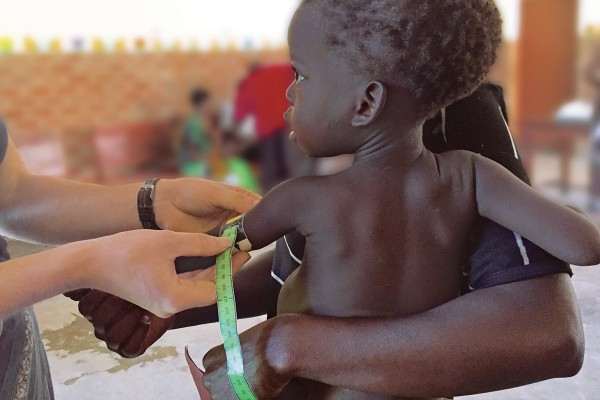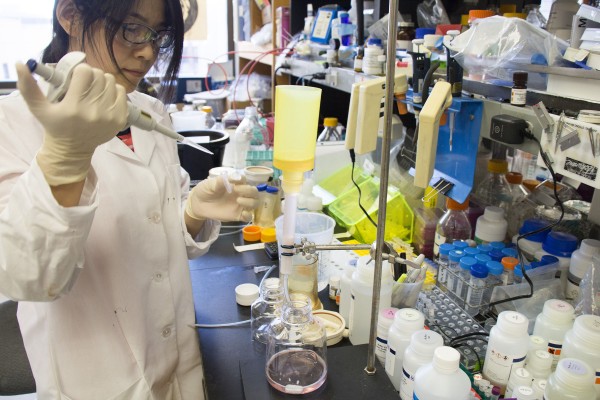Medical Campus phone outage postponed
The phone network at the Medical Campus and several other School of Medicine and BJC locations was scheduled to be disrupted from late Friday, Feb. 19, through early Saturday, Feb. 20, for maintenance. However, that maintenance has been postponed. A new date has not been set.
Breakthroughs in the fight against childhood malnutrition
Two new studies led by Washington University School of Medicine in St. Louis show that effects of gut bacteria reach far beyond the gastrointestinal tract. Manipulating the makeup of microbes in the gut has the potential to provide new ways to treat and ultimately help prevent childhood malnutrition.
Haroutounian named chief of clinical research for Pain Center
Simon Haroutounian, PhD, assistant professor of anesthesiology, has been named the chief of clinical research for the Washington University Pain Center.
Improving veterans’ radiation therapy
Washington University School of Medicine in St. Louis has been selected to lead national efforts to improve and standardize radiation therapy for veterans with cancer.
Medical Campus phones to be offline this weekend
The phone network at the Medical Campus and several other School of Medicine and BJC locations will be disrupted for four hours from late Friday, Feb. 19, through early Saturday, Feb. 20, for maintenance.
Rise in marijuana use not as high as previously reported
Research, from Washington University School of Medicine in St. Louis shows that the rate of pot use did not double from 2002 to 2013 — as had been reported in the fall — and that the rate of problems related to the drug remained steady.
Two southbound lanes of Taylor closed Feb. 8-12
Attention Medical Campus drivers: Two southbound lanes of Taylor Avenue between Forest Park and Duncan avenues will be closed from 7 a.m. to 3 p.m. today through Friday, Feb. 12, for construction work.
Washington University ‘Memory Hackers’ featured on PBS/NOVA
An upcoming broadcast of NOVA called “Memory Hackers,” airs Wednesday, Feb. 10, and will explore the cutting edge frontiers of human memory. Washington University in St. Louis scientists are featured in the show.
Center for Women’s Infectious Diseases Research holds symposium
The Washington University Center for Women’s Infectious Diseases Research held its annual symposium in November on the Medical Campus. The event featured research talks by 2014-15 awardees of the CWIDR Pilot Grant Program, which aims to bring together researchers across departments to focus on topics related to women’s infectious diseases
Fighting Zika: A team effort
Over the past seven months, two collaborating teams of scientists at Washington University School of Medicine – both focused on emerging infectious diseases – have redirected their efforts to concentrate on Zika virus.
View More Stories






